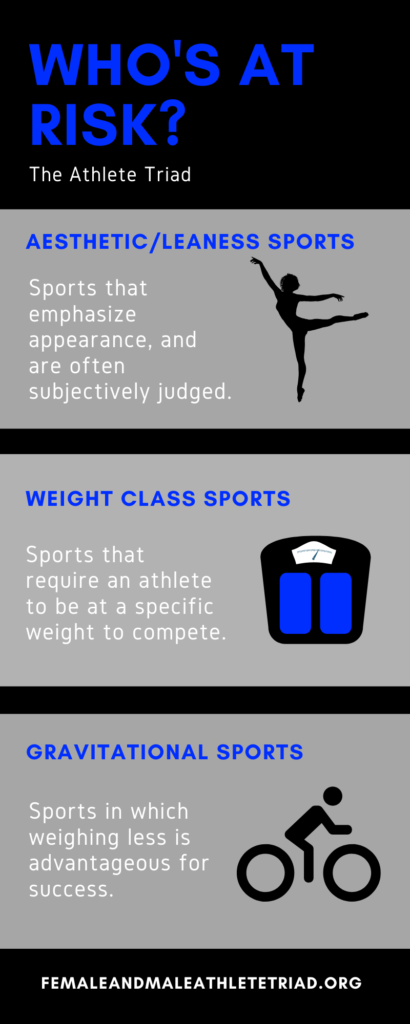Disordered Eating is different from Eating Disorders.
While eating disorders are diagnosed psychological illnesses characterized by pathological eating behaviors that negatively impact health (think Anorexia Nervosa and Bulimia Nervosa), disordered eating, according to the Academy of Nutrition and Dietetics, describes a range of atypical eating behaviors that affect your ability to maintain sufficient caloric intake encompass- disordered eating behaviors are very distinct from being classified, or diagnosed with an eating disorder.
Disordered eating is not only psychologically taxing, but also it is one of the major pathways to The Female and Male Athlete Triad. This type of behavior can lead to an energy deficit that causes your reproductive system to shut down and bone integrity to be compromised.
The following signs and symptoms can indicate disordered eating:
Preoccupation with being thin (high drive for thinness)
Conscious effort to restrict your food intake (high dietary cognitive restraint)
Dieting/ Meal skipping
Anxiety, shame, guilt about eating specific foods
Chronic weight fluctuations
Rigid routines around food and exercise
Compulsive eating
Using exercise/fasting/food restriction to punish or “make up for” food consumed
Disordered eating behaviors are common, in both men and women, involved in weight-class sports, sports that emphasize leanness or muscularity, and endurance sports.
- Diving
- Gymnastics
- Ice Skating
- Dance
- Wrestling
- Boxing
- Rowing
- Running
- Ski Jumping
- High Jump
- Pole Vault
- Cycling


